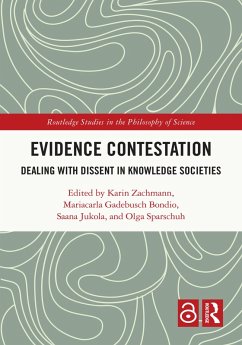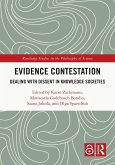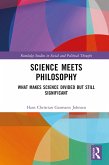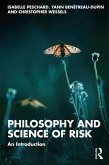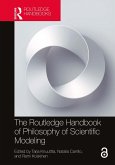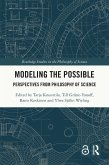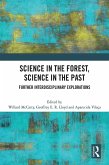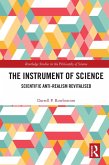Evidence Contestation (eBook, PDF)
Dealing with Dissent in Knowledge Societies
Redaktion: Zachmann, Karin; Sparschuh, Olga; Jukola, Saana; Bondio, Mariacarla Gadebusch
0,00 €
0,00 €
inkl. MwSt.
Sofort per Download lieferbar

0 °P sammeln
0,00 €
Als Download kaufen

0,00 €
inkl. MwSt.
Sofort per Download lieferbar

0 °P sammeln
Jetzt verschenken
Alle Infos zum eBook verschenken
0,00 €
inkl. MwSt.
Sofort per Download lieferbar
Alle Infos zum eBook verschenken

0 °P sammeln
Evidence Contestation (eBook, PDF)
Dealing with Dissent in Knowledge Societies
Redaktion: Zachmann, Karin; Sparschuh, Olga; Jukola, Saana; Bondio, Mariacarla Gadebusch
- Format: PDF
- Merkliste
- Auf die Merkliste
- Bewerten Bewerten
- Teilen
- Produkt teilen
- Produkterinnerung
- Produkterinnerung

Bitte loggen Sie sich zunächst in Ihr Kundenkonto ein oder registrieren Sie sich bei
bücher.de, um das eBook-Abo tolino select nutzen zu können.
Hier können Sie sich einloggen
Hier können Sie sich einloggen
Sie sind bereits eingeloggt. Klicken Sie auf 2. tolino select Abo, um fortzufahren.

Bitte loggen Sie sich zunächst in Ihr Kundenkonto ein oder registrieren Sie sich bei bücher.de, um das eBook-Abo tolino select nutzen zu können.
This book examines the practices of contesting evidence in democratically constituted knowledge societies. It provides a multifaceted view of the processes and conditions of evidence criticism and how they determine the dynamics of de- and re-stabilization of evidence.
- Geräte: PC
- ohne Kopierschutz
- eBook Hilfe
- Größe: 4.97MB
Andere Kunden interessierten sich auch für
![Evidence Contestation (eBook, ePUB) Evidence Contestation (eBook, ePUB)]() Evidence Contestation (eBook, ePUB)0,00 €
Evidence Contestation (eBook, ePUB)0,00 €![Science Meets Philosophy (eBook, PDF) Science Meets Philosophy (eBook, PDF)]() Hans Christian Garmann JohnsenScience Meets Philosophy (eBook, PDF)41,95 €
Hans Christian Garmann JohnsenScience Meets Philosophy (eBook, PDF)41,95 €![Philosophy and Science of Risk (eBook, PDF) Philosophy and Science of Risk (eBook, PDF)]() Isabelle PeschardPhilosophy and Science of Risk (eBook, PDF)37,95 €
Isabelle PeschardPhilosophy and Science of Risk (eBook, PDF)37,95 €![The Routledge Handbook of Philosophy of Scientific Modeling (eBook, PDF) The Routledge Handbook of Philosophy of Scientific Modeling (eBook, PDF)]() The Routledge Handbook of Philosophy of Scientific Modeling (eBook, PDF)177,95 €
The Routledge Handbook of Philosophy of Scientific Modeling (eBook, PDF)177,95 €![Modeling the Possible (eBook, PDF) Modeling the Possible (eBook, PDF)]() Modeling the Possible (eBook, PDF)0,00 €
Modeling the Possible (eBook, PDF)0,00 €![Science in the Forest, Science in the Past (eBook, PDF) Science in the Forest, Science in the Past (eBook, PDF)]() Science in the Forest, Science in the Past (eBook, PDF)41,95 €
Science in the Forest, Science in the Past (eBook, PDF)41,95 €![The Instrument of Science (eBook, PDF) The Instrument of Science (eBook, PDF)]() Darrell P. RowbottomThe Instrument of Science (eBook, PDF)44,95 €
Darrell P. RowbottomThe Instrument of Science (eBook, PDF)44,95 €-
-
-
This book examines the practices of contesting evidence in democratically constituted knowledge societies. It provides a multifaceted view of the processes and conditions of evidence criticism and how they determine the dynamics of de- and re-stabilization of evidence.
Dieser Download kann aus rechtlichen Gründen nur mit Rechnungsadresse in A, B, BG, CY, CZ, D, DK, EW, E, FIN, F, GR, HR, H, IRL, I, LT, L, LR, M, NL, PL, P, R, S, SLO, SK ausgeliefert werden.
Produktdetails
- Produktdetails
- Verlag: Taylor & Francis eBooks
- Seitenzahl: 346
- Erscheinungstermin: 21. Februar 2023
- Englisch
- ISBN-13: 9781000839852
- Artikelnr.: 67398579
- Verlag: Taylor & Francis eBooks
- Seitenzahl: 346
- Erscheinungstermin: 21. Februar 2023
- Englisch
- ISBN-13: 9781000839852
- Artikelnr.: 67398579
- Herstellerkennzeichnung Die Herstellerinformationen sind derzeit nicht verfügbar.
Karin Zachmann is a professor of the history of technology at the Technical University of Munich, Germany, and co-speaker of the DFG research group "Practicing Evidence - Evidencing Practice". Mariacarla Gadebusch Bondio heads the Institute for the Medical Humanities at the University Hospital of Bonn, Germany. She is the co-editor, with Francesco Spöring and John-Stewart Gordon, of Medical Ethics, Prediction, and Prognosis: Interdisciplinary Perspectives (New York: Routledge, 2017). Saana Jukola is a postdoctoral researcher at the Department of Philosophy I, Ruhr University Bochum, Germany, under the DFG-Emmy Noether Research Group "The Return of the Organism in the Biosciences: Theoretical, Historical, and Social Dimensions". Olga Sparschuh is a postdoctoral researcher in history of technology at the Technical University of Munich, Germany, and the coordinator of the DFG research group "Practicing Evidence - Evidencing Practice".
Part 1: Theoretical Framing: Evidence Critique and Contestation 1. What is
Scientific Criticism for? Some Philosophical Reflections on Criticism and
Evidence within the Scientific Ethos Elif Özmen and Daniel Füger 2.
Questioning Evidence: Three Modes of Contestation Eva Barlösius and Eva
Ruffing Part 2: Striving for Diverse Evidence: Ecological and Biological
Evidence Critique 3. How Many Plots Can the Data Hold? Reconciling Stories
and Evidence in Evolutionary Biology Martha Kenney 4. Rethinking Evidence
Practices for Environmental Decision-Making in the Anthropocene. What Can
We Learn from Invasive Species Research and Policy? Christoph Kueffer Part
3: Questioning the Criteria for Evidence: Health Sciences 5. Surgical Caps
and Trouble with Evidence. Epistemology and Ethics of Perioperative Hygiene
Measures Saana Jukola and Mariacarla Gadebusch Bondio 6. Negotiating
Consensus for Diverging Evidence. An Application of the Explanatory
Approach to Guidelines for the Treatment of Substance Use Disorders and
Addiction Fredrik Andersen, Yngve Herikstad, Anders Dechsling and Stefan
Sütterlin Part 4: Challenging Academic Evidence: Counter Science, Citizen
Science and Environmental Activism 7. Evidence against the "Nuclear State".
Contesting Technoscience through Gegenwissenschaft in the 1970s and 1980s
Stefan Esselborn and Karin Zachmann 8. Appropriating Evidence. Scientific
Criticism and Environmental Activism in the Global Pesticide Controversy
during the 1970s and 1980s Sarah Ehlers 9. Participation as Evidence
Contestation. The Ambiguous Balance of Social and Epistemic Involvement
through Citizen Science Kevin Altmann and Andreas Wenninger Part 5:
Interpreting and Communicating Academic Evidence: Consumer Behavior and the
Media 10. Exploring Consumers' Interpretation of Contested Nutritional
Evidence. The Relevance of the Moral Foundations Theory Edoardo Maria Pelli
and Jutta Roosen 11. Stories about Villains, Mad Scientists and Failure.
Patterns of Evidence Criticism in Media Coverage of Genomic Research
Susanne Kinnebrock and Helena Bilandzic
Scientific Criticism for? Some Philosophical Reflections on Criticism and
Evidence within the Scientific Ethos Elif Özmen and Daniel Füger 2.
Questioning Evidence: Three Modes of Contestation Eva Barlösius and Eva
Ruffing Part 2: Striving for Diverse Evidence: Ecological and Biological
Evidence Critique 3. How Many Plots Can the Data Hold? Reconciling Stories
and Evidence in Evolutionary Biology Martha Kenney 4. Rethinking Evidence
Practices for Environmental Decision-Making in the Anthropocene. What Can
We Learn from Invasive Species Research and Policy? Christoph Kueffer Part
3: Questioning the Criteria for Evidence: Health Sciences 5. Surgical Caps
and Trouble with Evidence. Epistemology and Ethics of Perioperative Hygiene
Measures Saana Jukola and Mariacarla Gadebusch Bondio 6. Negotiating
Consensus for Diverging Evidence. An Application of the Explanatory
Approach to Guidelines for the Treatment of Substance Use Disorders and
Addiction Fredrik Andersen, Yngve Herikstad, Anders Dechsling and Stefan
Sütterlin Part 4: Challenging Academic Evidence: Counter Science, Citizen
Science and Environmental Activism 7. Evidence against the "Nuclear State".
Contesting Technoscience through Gegenwissenschaft in the 1970s and 1980s
Stefan Esselborn and Karin Zachmann 8. Appropriating Evidence. Scientific
Criticism and Environmental Activism in the Global Pesticide Controversy
during the 1970s and 1980s Sarah Ehlers 9. Participation as Evidence
Contestation. The Ambiguous Balance of Social and Epistemic Involvement
through Citizen Science Kevin Altmann and Andreas Wenninger Part 5:
Interpreting and Communicating Academic Evidence: Consumer Behavior and the
Media 10. Exploring Consumers' Interpretation of Contested Nutritional
Evidence. The Relevance of the Moral Foundations Theory Edoardo Maria Pelli
and Jutta Roosen 11. Stories about Villains, Mad Scientists and Failure.
Patterns of Evidence Criticism in Media Coverage of Genomic Research
Susanne Kinnebrock and Helena Bilandzic
Part 1: Theoretical Framing: Evidence Critique and Contestation 1. What is
Scientific Criticism for? Some Philosophical Reflections on Criticism and
Evidence within the Scientific Ethos Elif Özmen and Daniel Füger 2.
Questioning Evidence: Three Modes of Contestation Eva Barlösius and Eva
Ruffing Part 2: Striving for Diverse Evidence: Ecological and Biological
Evidence Critique 3. How Many Plots Can the Data Hold? Reconciling Stories
and Evidence in Evolutionary Biology Martha Kenney 4. Rethinking Evidence
Practices for Environmental Decision-Making in the Anthropocene. What Can
We Learn from Invasive Species Research and Policy? Christoph Kueffer Part
3: Questioning the Criteria for Evidence: Health Sciences 5. Surgical Caps
and Trouble with Evidence. Epistemology and Ethics of Perioperative Hygiene
Measures Saana Jukola and Mariacarla Gadebusch Bondio 6. Negotiating
Consensus for Diverging Evidence. An Application of the Explanatory
Approach to Guidelines for the Treatment of Substance Use Disorders and
Addiction Fredrik Andersen, Yngve Herikstad, Anders Dechsling and Stefan
Sütterlin Part 4: Challenging Academic Evidence: Counter Science, Citizen
Science and Environmental Activism 7. Evidence against the "Nuclear State".
Contesting Technoscience through Gegenwissenschaft in the 1970s and 1980s
Stefan Esselborn and Karin Zachmann 8. Appropriating Evidence. Scientific
Criticism and Environmental Activism in the Global Pesticide Controversy
during the 1970s and 1980s Sarah Ehlers 9. Participation as Evidence
Contestation. The Ambiguous Balance of Social and Epistemic Involvement
through Citizen Science Kevin Altmann and Andreas Wenninger Part 5:
Interpreting and Communicating Academic Evidence: Consumer Behavior and the
Media 10. Exploring Consumers' Interpretation of Contested Nutritional
Evidence. The Relevance of the Moral Foundations Theory Edoardo Maria Pelli
and Jutta Roosen 11. Stories about Villains, Mad Scientists and Failure.
Patterns of Evidence Criticism in Media Coverage of Genomic Research
Susanne Kinnebrock and Helena Bilandzic
Scientific Criticism for? Some Philosophical Reflections on Criticism and
Evidence within the Scientific Ethos Elif Özmen and Daniel Füger 2.
Questioning Evidence: Three Modes of Contestation Eva Barlösius and Eva
Ruffing Part 2: Striving for Diverse Evidence: Ecological and Biological
Evidence Critique 3. How Many Plots Can the Data Hold? Reconciling Stories
and Evidence in Evolutionary Biology Martha Kenney 4. Rethinking Evidence
Practices for Environmental Decision-Making in the Anthropocene. What Can
We Learn from Invasive Species Research and Policy? Christoph Kueffer Part
3: Questioning the Criteria for Evidence: Health Sciences 5. Surgical Caps
and Trouble with Evidence. Epistemology and Ethics of Perioperative Hygiene
Measures Saana Jukola and Mariacarla Gadebusch Bondio 6. Negotiating
Consensus for Diverging Evidence. An Application of the Explanatory
Approach to Guidelines for the Treatment of Substance Use Disorders and
Addiction Fredrik Andersen, Yngve Herikstad, Anders Dechsling and Stefan
Sütterlin Part 4: Challenging Academic Evidence: Counter Science, Citizen
Science and Environmental Activism 7. Evidence against the "Nuclear State".
Contesting Technoscience through Gegenwissenschaft in the 1970s and 1980s
Stefan Esselborn and Karin Zachmann 8. Appropriating Evidence. Scientific
Criticism and Environmental Activism in the Global Pesticide Controversy
during the 1970s and 1980s Sarah Ehlers 9. Participation as Evidence
Contestation. The Ambiguous Balance of Social and Epistemic Involvement
through Citizen Science Kevin Altmann and Andreas Wenninger Part 5:
Interpreting and Communicating Academic Evidence: Consumer Behavior and the
Media 10. Exploring Consumers' Interpretation of Contested Nutritional
Evidence. The Relevance of the Moral Foundations Theory Edoardo Maria Pelli
and Jutta Roosen 11. Stories about Villains, Mad Scientists and Failure.
Patterns of Evidence Criticism in Media Coverage of Genomic Research
Susanne Kinnebrock and Helena Bilandzic
